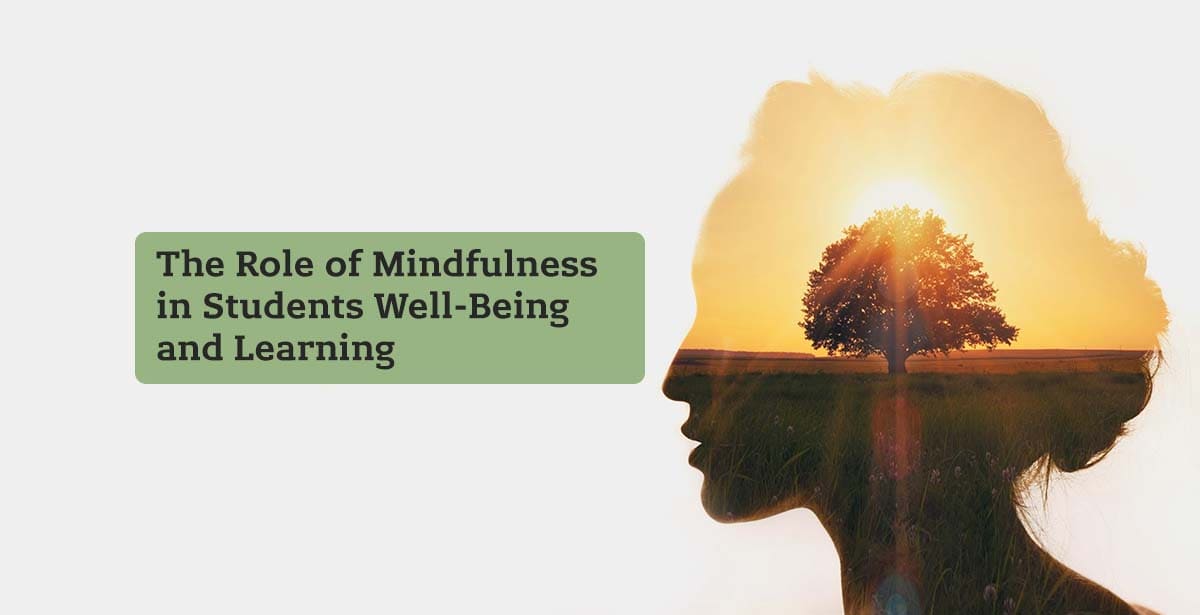In today’s fast-paced and demanding educational environment, students face a variety of challenges, from academic pressures to social anxieties. To combat these stressors, schools are increasingly turning to mindfulness-based programs to support and enhance students’ mental, emotional, and behavioral health. A growing body of research underscores the effectiveness of these interventions, highlighting their ability to improve emotional regulation, build resilience, and reduce symptoms of stress, anxiety, and depression.
What is Mindfulness?
Mindfulness is the practice of being fully present—aware of what’s happening both within and around us, without dwelling on the past or worrying excessively about the future. At its core, mindfulness encourages individuals to focus on their thoughts, actions, and bodily sensations with openness and acceptance. It’s about cultivating awareness, compassion, and calm—the “Three Cs” that form the foundation of the practice.

Though rooted in Indian philosophy and traditions like Hinduism and Buddhism, mindfulness is a secular practice that transcends religious boundaries. It has parallels in various indigenous cultural practices and has been widely adopted in Western wellness approaches, particularly in education and mental health care.
The Science Behind Mindfulness: Proven Benefits
Extensive research has demonstrated the wide range of benefits mindfulness offers, particularly in managing stress, anxiety, and depression. Studies have shown that mindfulness can help individuals cope with serious illnesses, foster emotional resilience, and improve overall well-being. For students, this is particularly significant as they navigate the complexities of academic life, peer relationships, and personal development.
A recent literature review published in Psychiatric Services examined the impact of school-based mindfulness interventions. The review, conducted by Tina Marshall, Ph.D., and her team, analyzed studies from 2008 to 2022, focusing on programs designed to improve student mental health and emotional regulation. The findings were compelling: mindfulness programs showed measurable improvements in resilience, emotional awareness, and mental health outcomes. Students participating in these interventions also experienced decreases in attention problems, stress, depressive symptoms, and rumination.
For more Blogs and the Latest exam updates visit easynotestore..

Top Mindfulness Programs Making a Difference in Schools
Out of the 41 studies reviewed, three mindfulness programs were found to have high levels of evidence supporting their effectiveness:
- Learning to BREATHE: This program focuses on emotional regulation through awareness of breathing, bodily sensations, and mental states. Students learn to develop a nonjudgmental attitude toward their thoughts and feelings.
- Mindfulness in Schools Project: Combining mindfulness with meditation practices, this program includes seated and slow-walking meditation, helping students develop emotional self-regulation and greater awareness.
- Mindfulness-Based Stress Reduction (MBSR): MBSR incorporates mindfulness techniques aimed at reducing stress and improving emotional health through breathing exercises and body awareness.
Looking Ahead: The Future of Mindfulness in Education
As mindfulness becomes more widely accepted and extensively studied, it holds great promise for fostering long-term mental health and well-being in students. Families, educators, and community members are encouraged to explore and recommend these programs as part of school health curricula.
The growing evidence of mindfulness programs’ effectiveness suggests that they can play a key role in preventing mental health issues before they escalate, helping students thrive academically and emotionally. By integrating mindfulness into school systems, we can equip the next generation with the tools they need to lead healthier, more mindful lives.
Final Thoughts
Mindfulness is more than just a trend in education—it’s a powerful tool that can help students become more resilient, focused, and emotionally aware. As schools continue to adopt these programs, the benefits will extend beyond the classroom, fostering lifelong skills that contribute to both personal and academic success. Whether through structured programs like Learning to BREATHE or simple daily mindfulness practices, the impact on student well-being is undeniable.